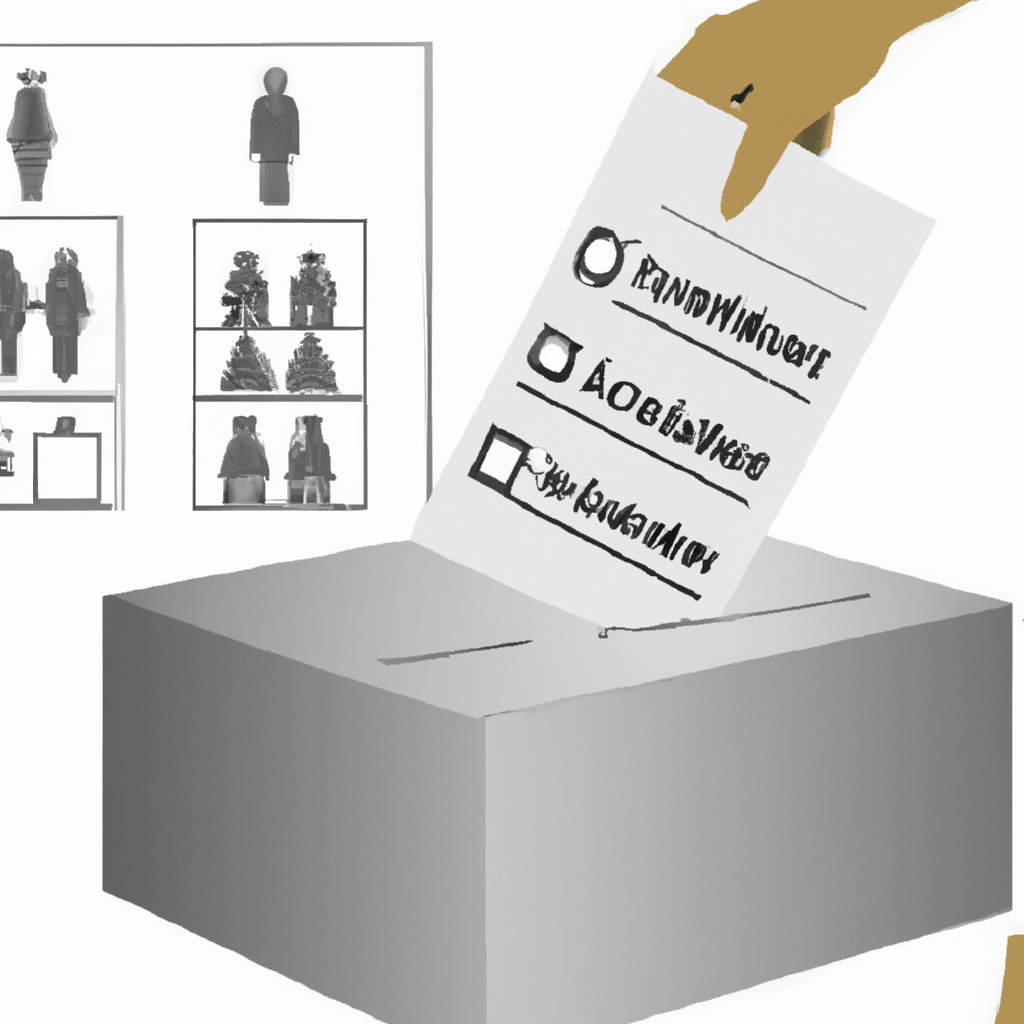Proposed reforms to electoral systems.

The proposed reforms to electoral systems aim to enhance fairness, representation, and efficiency in the democratic process. These changes intend to address concerns about gerrymandering, voter suppression, and the influence of money in politics. By implementing measures such as proportional representation, ranked-choice voting, and automatic voter registration, the hope is to increase voter turnout and ensure that every vote counts. These reforms encourage a more diverse range of candidates to participate in elections and empower marginalized communities. The ultimate goal is to strengthen democracy by promoting transparency, accountability, and equal representation for all citizens. It is a significant step forward in creating a more inclusive and responsive political system.
Read more
Global examples of electoral systems

Different countries around the world have implemented various electoral systems to ensure fair and democratic elections. One example is the proportional representation system used in Germany, where the number of seats a political party wins in the parliament directly corresponds to the percentage of votes it receives. In contrast, the first-past-the-post system, employed in the United Kingdom and the United States, awards seats to the candidate with the most votes, regardless of the percentage obtained. Another system, called the mixed-member proportional, is used in New Zealand. It combines elements of both proportional representation and first-past-the-post, aiming to achieve a more balanced representation of political parties in parliament. These examples demonstrate the diversity of electoral systems worldwide.
Read more
Historical overview of electoral systems

Electoral systems have evolved throughout history, shaped by social and political contexts. Ancient Athens pioneered direct democracy, where citizens directly participated in decision-making. In medieval Europe, feudal societies had limited participation, with rulers appointing representatives. The Industrial Revolution and the rise of nation-states led to demands for broader enfranchisement. Universal suffrage emerged in the late 19th and early 20th centuries, with many countries adopting proportional representation or winner-takes-all systems. Post-colonial nations often adopted a mix of different systems, balancing representation with stability. Recent debates revolve around issues like gerrymandering, campaign finance, and voter suppression. As societies continue to evolve, the quest for fair and inclusive electoral systems persists.
Read more
Different types of electoral systems

Different types of electoral systems play a crucial role in shaping democracies around the world. One such system is the plurality system, where the candidate with the most votes wins. This system is used in countries like the United States and the United Kingdom. Another system is proportional representation, which aims to allocate seats according to the percentage of votes a party receives. This system can foster more diverse representation and accommodate smaller parties. The mixed-member proportional system combines elements of both plurality and proportional representation, allowing voters to cast votes for both individual candidates and parties. Understanding these systems is essential for citizens to actively participate in their democracies.
Read more
Caste systems

Caste systems have long served as social hierarchies, sanctioning divisions based on birth. These systems, prevalent in various regions globally, dictate one's position and privileges from birth. The caste one is born into determines their opportunities, rights, and even interactions with others. They instill a sense of superiority or inferiority, leading to stark disparities in education, employment, and social mobility. The rigid nature of caste systems perpetuates discrimination, as individuals are confined to their designated roles, stifling their personal growth and potential. Breaking free from the confines of caste is an arduous task, with systemic barriers and deep-rooted biases obstructing progress towards a more equitable society.
Read more
legislative systems

A legislative system refers to the framework established by a country to develop, enact and interpret laws. It is essential for maintaining order, promoting justice, and protecting the rights and interests of citizens. Legislative systems vary worldwide, reflecting cultural and political differences. They commonly consist of a parliament or congress, where elected representatives draft and vote on proposed legislation. The process involves discussions, negotiations, and public consultations to ensure transparency and accountability. Additionally, legislative systems provide checks and balances, preventing abuses of power and promoting democratic principles. They play a vital role in shaping and regulating societies, striving for fairness, inclusivity, and the common good.
Read more
Electoral systems

Electoral systems play a crucial role in shaping democratic governance. They serve as the framework through which citizens elect their representatives and express their political preferences. A well-designed electoral system can ensure fair representation, encourage political participation, and foster stability in a country's political landscape. There are various types of electoral systems, including proportional representation, plurality/majority systems, and mixed systems. Each system has its own advantages and disadvantages, impacting the inclusivity of representation, the formation of governments, and the degree of accountability. Understanding electoral systems is essential for assessing the effectiveness and legitimacy of democratic processes.
Read more
Economic systems

An economic system refers to the way a country or society organizes and manages its resources, production, and distribution of goods and services. It is the framework that determines how economic decisions are made, such as what to produce, how to produce it, and who will benefit from the produced goods and services. There are various types of economic systems, ranging from market economies, where the forces of supply and demand determine production and consumption, to command economies, where the government controls all aspects of economic activity. Each system has its own advantages and disadvantages, influencing the economic well-being and societal structure of a nation.
Read more
Role of money in electoral systems

The role of money in electoral systems has become increasingly influential in shaping political outcomes. Financial resources allow candidates to run extensive campaigns, reaching a wider audience and increasing their chances of electoral success. Money enables candidates to invest in advertising, hire professional staff, and organize large-scale rallies, all of which contribute to building name recognition and attracting voter support. However, concerns have been raised about the influence of money on electoral processes, including its potential to favor wealthy individuals or interest groups over those with limited resources. As such, the role of money in electoral systems has become a topic of debate, with ongoing discussions on how to ensure a fair and balanced playing field for all candidates.
Read more
Types of electoral systems

There are various types of electoral systems used throughout the world to determine the outcomes of elections. One common system is the plurality system, where the candidate who receives the most votes wins, regardless of whether they have a majority. Another system is the majority system, where a candidate must obtain an absolute majority to win. Proportional representation systems allocate seats based on the percentage of votes received by each party, ensuring proportional representation in the legislative body. Mixed electoral systems combine elements of both plurality and proportional representation systems. Other electoral systems include the single transferable vote and the alternative vote, which prioritize voter preferences. Each system has its advantages and disadvantages, influencing the fairness and representativeness of elections.
Read more












